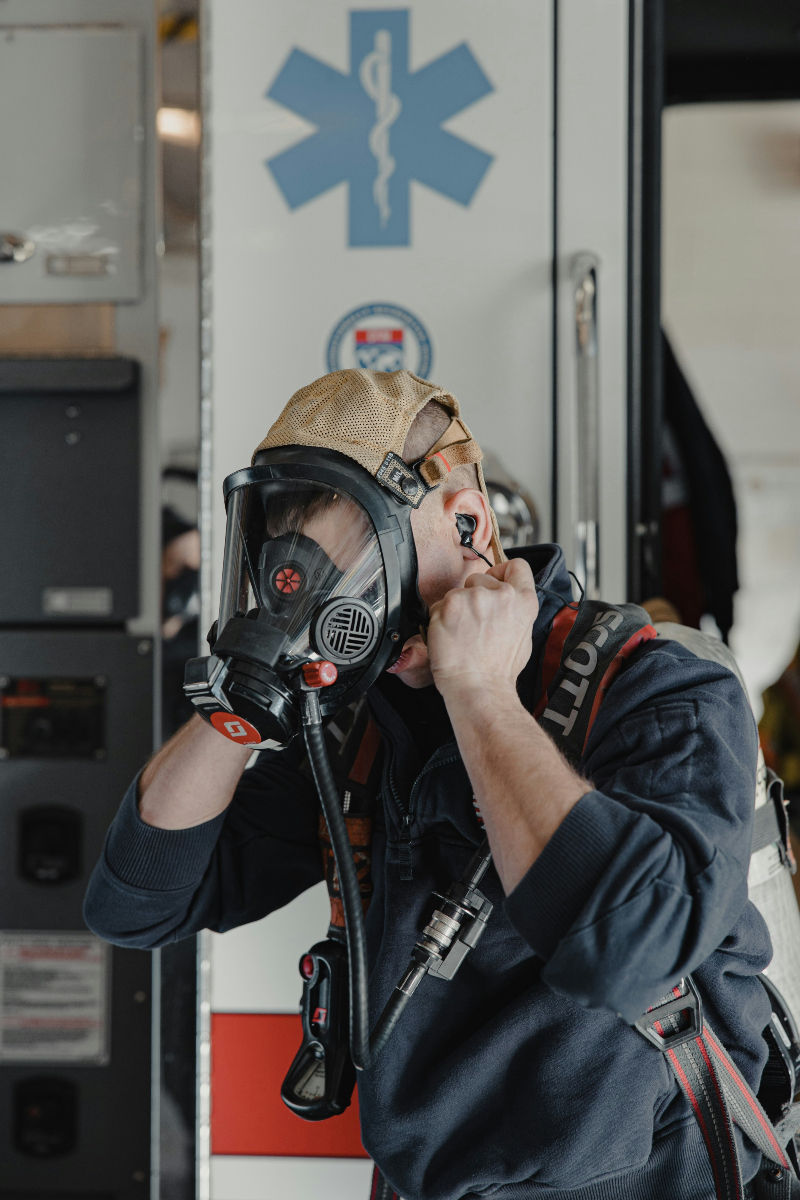Signs of PTSD in First Responders
- Oct 31, 2020
- 6 min read
Updated: Aug 12, 2025

For those on the front lines, the psychological toll of a career in emergency services can be immense. The constant exposure to trauma puts first responders at a high risk for developing PTSD, a serious condition with profound consequences that can affect every aspect of their lives.
What are the consequences of PTSD in first responders?
PTSD can lead to a number of severe consequences, including mental health issues like depression and anxiety, substance abuse, and even suicidal thoughts. It can also manifest as emotional numbness, social avoidance, and a persistent feeling of being under threat.
The effects of PTSD on first responders are wide-ranging and deeply impactful. Keep reading to learn more about the specific symptoms and why it's so important to address this issue.
What are the consequences of PTSD in first responders?
Did you know that nearly 37 percent of EMS personnel and firefighters in the US have contemplated suicide at some point in their lives? This is nearly 10 times the rate in average Americans.
First responders are exposed to some of the most traumatic near-death experiences and asked to run towards these dangers and disasters in an effort to save the people therein. Their work is noble, but it comes at a cost.
Some of the other devastating consequences of PTSD in first responders include:
Mental health problems like depression and anxiety
Problematic alcohol use or substance abuse
Suicidal ideation
First responders are at very high risk for developing many different mental health issues, such as anxiety, depression, and especially post-traumatic stress disorder (PTSD.) Symptoms of PTSD can be difficult to spot, depending on the person, but there are signs of PTSD in EMS workers and first responders that can help determine if professional therapy for trauma or PTSD treatment may be necessary.
PTSD Is Common and Dangerous in First Responders
First responders, EMS, law enforcement, and paramedic PTSD is common. These professions are all constantly exposed to traumatic events, and each of these experiences leaves its mark on their mental health.
Whether it be the intensity of trying to save someone from a house on fire or going into a situation where a shootout is possible, to treating wounds and trying to save a life while still on grounds of a high-stress situation, there are any number of images and traumatic experiences that can stick with someone far beyond the day of the incident.
Due to this constant exposure, coupled with the idea that first responders are supposed to appear strong as to instill hope and comfort in those they are trying to protect, symptoms of PTSD may go unnoticed or unaddressed.
However, it is something that is all too common, and first responder trauma is something that needs to be addressed and supported. One of the first things that someone can do is to look to their loved ones in law enforcement, search and rescue, paramedics, and EMT for PTSD symptoms.
Emotional Numbness
Emotional numbness is one way in which symptoms of PTSD can begin to present themselves. It can be a defense mechanism as someone tries to separate themselves from a world that is full of the trauma and pain that they may have experienced. However, this emotional numbness also includes emotionally distancing oneself from their families and loved ones, as well as any support systems they may have.
As a result, those expressing emotional numbness as a sign of PTSD may wall themselves off from just about everything and everyone in their lives, and it can be very difficult to start a conversation. Emotional numbness creates a situation where someone is trying to protect themselves from feeling the panic and mental turmoil that is present as the result of a traumatic experience, but it also provides no opportunity for someone to begin working through the trauma for their own health.
Without being able to address one’s trauma, it is even more likely that someone will turn to drugs or alcohol in an effort to continue to numb the pain, which can put first responders at an increased risk for developing an addiction as a result.
Avoidance
Avoidance is the practice of constantly steering away from either particular people or places. This is a conscious effort to ensure that someone doesn’t return to the scene of a traumatic event, but it also implies that someone is allowing the traumatic event to dictate their lives, and thus never really leaves their mind. By constantly creating plans around avoiding particular people or places, they are expressing the power that the emotional toll has over them, and thus it needs to be addressed.
Repetitive Memories

PTSD can be an inability to progress from the site of a traumatic event. Even at times of rest, flashes and memories of the traumatic scene may still be playing in one’s head. Someone experiencing these may try to find a number of ways to distract themselves if possible, in order to try to get a break from the horrific images in their mind.
However, continuously running through these memories means that the images are constantly taking a toll on someone and may lead them to try to distance themselves (akin to expressing emotional numbness). Furthermore, it may leave them feeling overall restless, as times of rest can also be times of horror from the trauma in their own mind.
A Persistent Threat of Danger
First responders experiencing PTSD may take an over-preparedness approach to try to quell their fears. This can involve over-preparing for any kind of disaster, trying to prepare for all disasters at once, or even being unwilling to leave one’s own residence without a firearm or other sense of protection.
As a result of PTSD, these preparations may take place regardless of the realistic chance of such disasters happening. Instead, this overly cautious nature stems from the very real, very intense trauma that they have already experienced. Having seen disaster and horror firsthand, sufferers of PTSD may try to prepare for everything possible, in order to regain any sense of safety or security that they can, no matter how small.

Use of Drugs or Alcohol
First responder PTSD is all too common, and addressing signs of PTSD early, as well as addressing the stigma surrounding professional therapy for their trauma, is the best way to help take a step in a positive direction.
The nature of the work of first responders will always be perilous, so it is paramount to help identify and address signs of PTSD in each of those who have dedicated themselves to helping others.
References
Frequently Asked Questions
• What are the signs of PTSD in first responders?
Symptoms of PTSD can present as emotional numbness, avoidance of people or places, repetitive memories of traumatic events, and a persistent feeling of being in danger.
• How does emotional numbness manifest in first responders with PTSD?
Emotional numbness can cause first responders to emotionally distance themselves from their loved ones and support systems, making it difficult for them to process their trauma.
• What is the connection between PTSD and substance abuse in first responders?
First responders with PTSD may turn to drugs or alcohol to numb the pain and distress caused by their trauma, which puts them at a higher risk of developing an addiction.
• Why is avoidance a symptom of PTSD?
Avoidance is a conscious effort to stay away from people or places associated with a traumatic event. It's a way the mind tries to protect itself, but it can also prevent a person from moving forward.
• How does PTSD affect a first responder's sense of safety?
PTSD can create a persistent feeling of danger, leading first responders to be overly cautious and constantly prepare for potential disasters, even when the realistic chance of them happening is low.
It’s clear that the path of a first responder is noble, but it also comes with immense challenges. The struggles with PTSD, substance abuse, and other mental health issues are very real, and you don’t have to face them alone. At Chateau Health and Wellness Treatment Center, we understand these unique pressures and are committed to helping our heroes find their way back to a life of peace and well-being. If you or a loved one are struggling, please know that we are here to support you. We believe in your strength, and together, we can navigate the journey toward healing. We encourage you to reach out to us at (435) 222-5225 to begin your path to recovery.

About The Author
Ben Pearson, LCSW - Clinical Director
With 19 years of experience, Ben Pearson specializes in adolescent and family therapy, de-escalation, and high-risk interventions. As a former Clinical Director of an intensive outpatient program, he played a key role in clinical interventions and group therapy. With 15+ years in wilderness treatment and over a decade as a clinician, Ben has helped countless individuals and families navigate mental health and recovery challenges.







